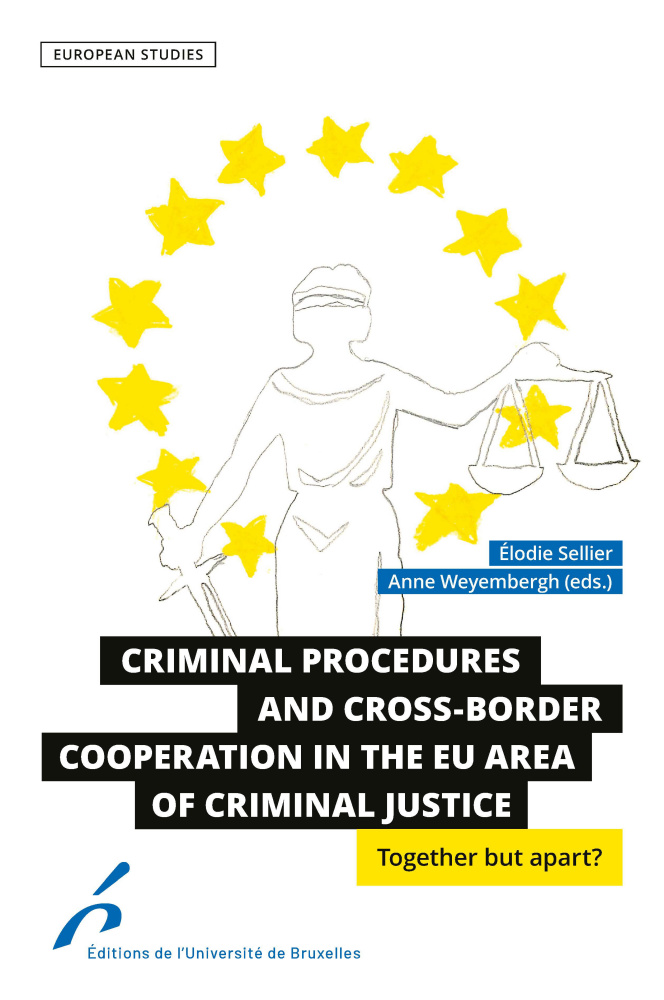Criminal Procedures and Cross-Border Cooperation in the EU Area of Criminal Justice
Together but apart?
This book examines to what extent differences between national procedural criminal laws hinder the negotiations and the operation of cross-border cooperation instruments in the EU area of criminal justice. Read More
For the past decade, judicial cooperation in criminal matters in the European Union has been premised on the principle of mutual recognition. Its operation presupposes the acceptance of mutual trust between the – diverse – legal systems of the Member States. That trust is grounded on their shared commitment to the principles of freedom, democracy, respect for human rights and the rule of law. Since the entry into force of the Lisbon Treaty, the EU legislator has adopted six directives on the procedural rights of defendants, together with one directive on victims' rights. However, against the background of intense legislative activity in criminal matters, illustrated by the adoption of the EPPO Regulation and the release of the E-Evidence Proposal, recent debates questioned whether further approximation efforts should be undertaken in the field of procedural criminal law.
In this context, this edited volume examines to what extent differences between national procedural criminal laws hinder the negotiations and the operation of cross-border cooperation instruments. It is based on a comparative analysis of a representative sample of Member States. It identifies several forms of "hindrances" to cross-border cooperation, ranging from mere delays to the suspension and the non-execution of assistance requests, alongside the striking underuse of some of the existing instruments. There is no simple or single answer to these challenges. Therefore, several non-legislative and legislative recommendations are put forward for the short- and long-term horizon.
Specifications
- Publisher
- Éditions de l'Université de Bruxelles
- Edited by
- Élodie Sellier, Anne Weyembergh,
- Foreword by
- Pedro Caeiro,
- Introduction by
- Élodie Sellier, Anne Weyembergh,
- Contributions by
- Petra Bárd, Aart de Vries, Joske Graat, Diana Ionescu, Tony Marguery, Daniel Niţu, Alexander Oppers, Élodie Sellier, Perrine Simon, Thomas Wahl, Anne Weyembergh,
- Collection
- European Studies | n° 66
- ISSN
- 13780352
- Language
- English
- Supporting Website
- Oapen.org
- Publisher Category
- Publishers own classification > Law
- BISAC Subject Heading
- LAW027000 LAW / Criminal Procedure
- CLIL (Version 2013-2019)
- 3280 Droit de l'Union européenne
- Title First Published
- 20 August 2020
- Subject Scheme Identifier Code
- Thema subject category: International law
Paperback
- Publication Date
- 20 August 2020
- ISBN-13
- 978-2-8004-1671-7
- Product Content
- Text (eye-readable)
- Extent
- Main content page count : 500
- Code
- 1671
- Dimensions
- 16 x 24 x 2.8 cm
- Weight
- 790 grams
- ONIX XML
- Version 2.1, Version 3
Google Book Preview
Contents
- Remerciements
- Introduction générale | Barbara DELCOURT, Marta MARTINELLI et Emmanuel KLIMIS
- Prolégomènes | Marta MARTINELLI
- PREMIÈRE PARTIE – L’UE et la gestion de crises. Aspects institutionnels
- Introduction | Marta MARTINELLI
- Le Conseil et la gestion de crises | Valérie PECLOW
- L’UE et la gestion de crises : le rôle de la Commission européenne | Federico SANTOPINTO
- La place du Parlement européen dans les processus de gestion de crises | Gerrard QUILLE
- DEUXIÈME PARTIE – L’UE et la gestion de crises. Études de cas
- Introduction | Emmanuel KLIMIS
- Les opérations EUPOL et EUSEC au Congo : l’UE entre engagement et apprentissage
| Marta MARTINELLI
- La réforme de la police en Macédoine : la coordination interinstitutionnelle et la coopération
internationale à l’épreuve | Isabelle IOANNIDES
- La gestion de crises : un point de vue de praticien | Maj. Junior DE FABRIBECKERS
- Les ONG, l’UE et la gestion de crises : modalités d’interactions | Damien HELLY
- L’Union européenne et l’ONU : quel partenariat dans la gestion civile des crises ? | Thierry TARDY
- La gestion de crises dans les États fragiles et la coopération européenne au développement
| Emmanuel KLIMIS
- TROISIÈME PARTIE – L’UE et la gestion de crises. Éléments d’évaluation
- Introduction | Barbara DELCOURT
- Les enjeux de l’intégration civilo-militaire : dynamiques transatlantiques de militarisation de
l’humanitaire et incertitudes européennes | Sami MAKKI
- Un outil particulier de gestion de crise en Afghanistan : les équipes de reconstruction
provinciales | Delphine RESTEIGNE
- Le rôle de la Belgique dans les tâches de Petersberg : le cas d’étude de l’Afrique
centrale | Sophie DA CÂMARA SANTA CLARA GOMES et Emmanuel KLIMIS
- Conclusion générale | Barbara DELCOURT, Marta MARTINELLI et Emmanuel KLIMIS
- Liste des abréviations, acronymes et sigles
- Présentation des auteurs

